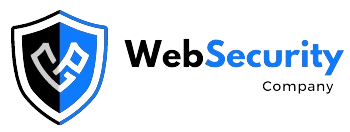As a freelancer, it’s crucial to understand the basics of cybersecurity to protect yourself and your clients from potential cyber threats. With the increasing reliance on technology in today’s digital age, cybersecurity has become more important than ever. Here are some cybersecurity basics that every freelancer should know.
1. Use strong and unique passwords: One of the simplest yet most effective ways to protect your online accounts is by using strong and unique passwords. Avoid using common passwords such as “password” or “123456” as they are easily guessed by hackers. Instead, use a combination of letters, numbers, and special characters to create a strong password. Additionally, it’s important to use a different password for each of your online accounts to prevent hackers from gaining access to all of your accounts if one is compromised.
2. Enable two-factor authentication: Two-factor authentication adds an extra layer of security to your online accounts by requiring a second form of verification, such as a code sent to your phone or email, in addition to your password. This makes it more difficult for hackers to access your accounts even if they have your password.
3. Keep your software and devices up to date: Hackers often exploit vulnerabilities in outdated software and devices to gain unauthorized access to systems. Make sure to regularly update your operating system, software, and applications to patch any security vulnerabilities and keep your devices secure.
4. Be cautious of phishing scams: Phishing scams are common tactics used by hackers to trick individuals into providing sensitive information, such as login credentials or financial details. Be wary of unsolicited emails, messages, or links that ask for personal information and always verify the sender’s identity before clicking on any links or attachments.
5. Use secure Wi-Fi networks: When working remotely, be cautious of using public Wi-Fi networks as they are often unsecured and pose a risk to your data security. Whenever possible, use a virtual private network (VPN) to encrypt your internet connection and protect your data from prying eyes.
6. Back up your data: Regularly backing up your data is essential to prevent data loss in case of a cyber attack or hardware failure. Consider using cloud storage services or external hard drives to securely back up your important files and documents.
7. Stay informed about cybersecurity threats: Cybersecurity threats are constantly evolving, so it’s important to stay informed about the latest trends and tactics used by hackers. Follow reputable cybersecurity blogs and news outlets to stay up to date on current threats and best practices for protecting yourself online.
By following these cybersecurity basics, freelancers can better protect themselves and their clients from potential cyber threats. Taking proactive measures to secure your online accounts and data will help safeguard your digital presence and maintain the trust of your clients. Remember, cybersecurity is everyone’s responsibility, so make sure to prioritize the security of your online activities as a freelancer.






